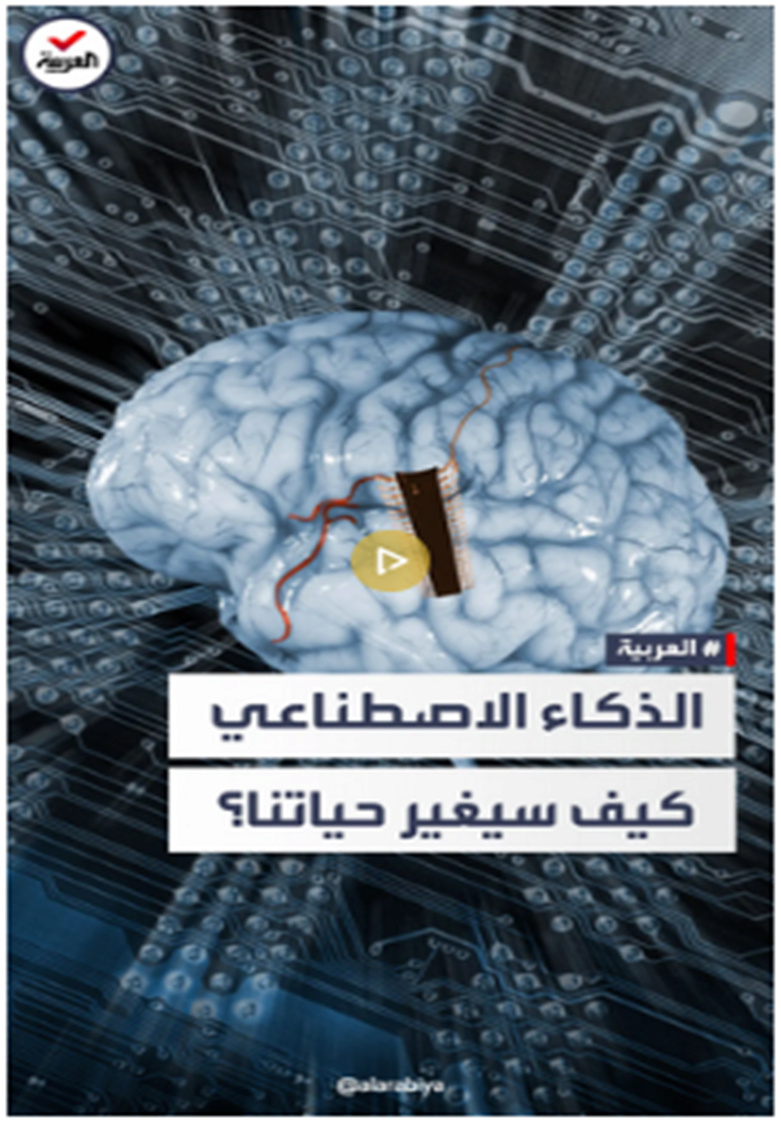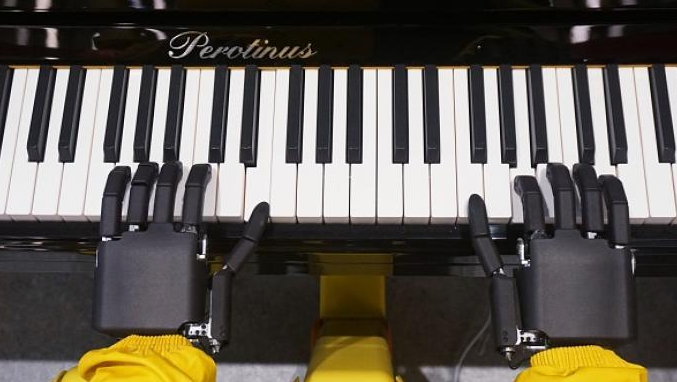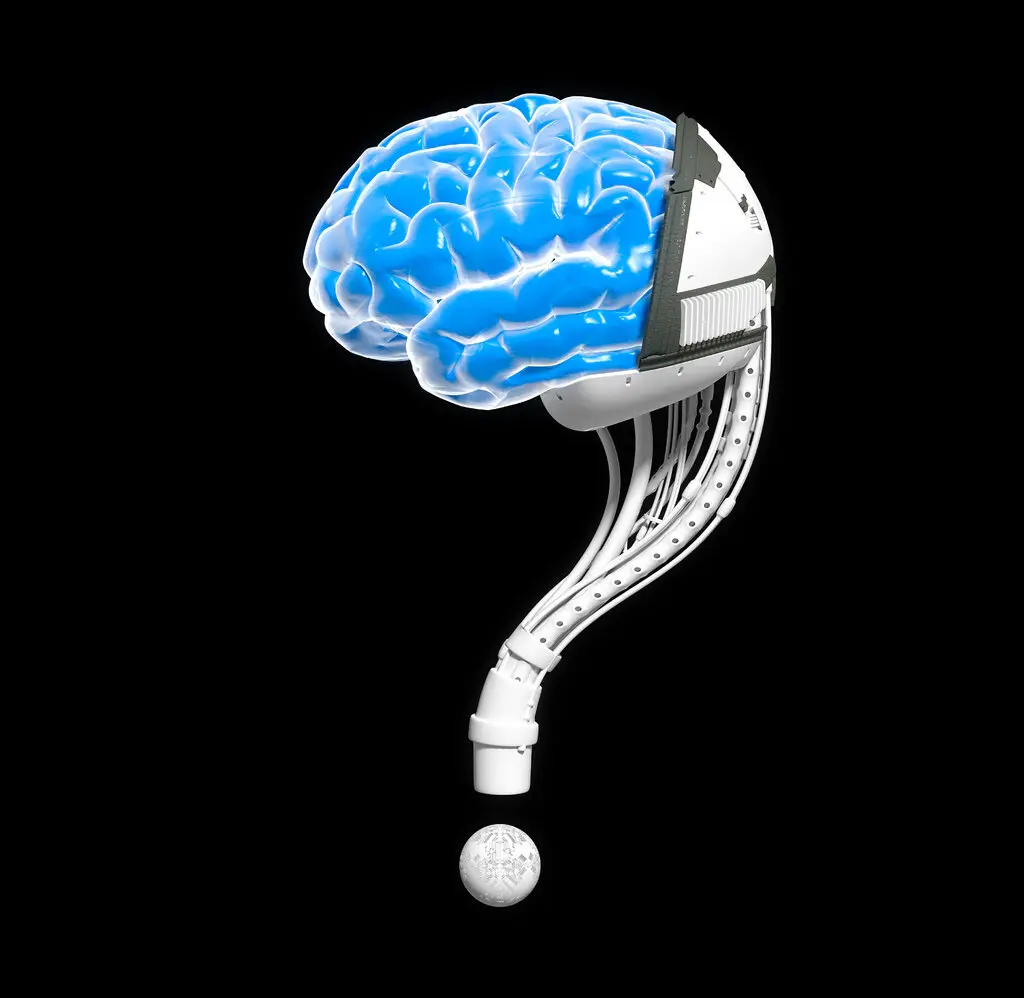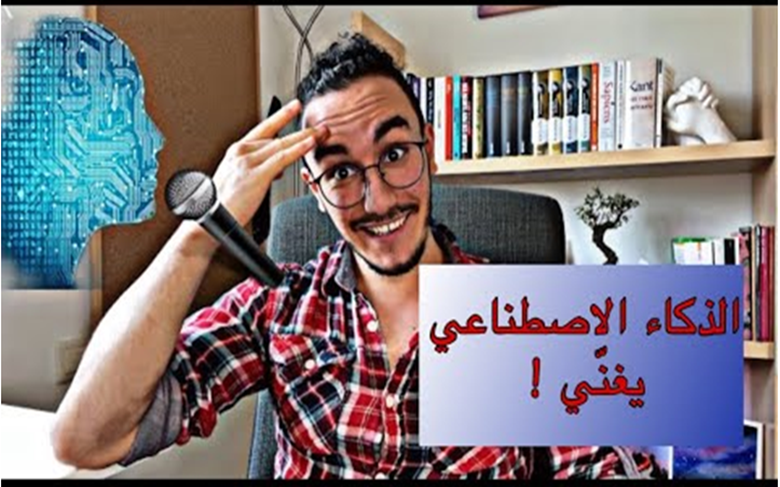Fear of Artificial Intelligence: Art vs. Algorithm

A group of artists and activists have launched a call to boycott artificial intelligence, more precisely all art produced by artificial intelligence. The first reason, which concerns designers, is that AI threatens their profession. What usually requires hours of design, possibilities, and options for the “customer” to be convinced, can now be generated in minutes, and in an infinite amount, that is, in a way, artificial intelligence steals human labor, according to the boycott advocates.
This radical attitude of some towards art resulting from artificial intelligence is understandable, as it threatens “livelihood”, knowing that it only facilitated the work of designers and frightened some of them, and did not replace “artists”, but the terror still exists, not only out of concern for livelihood, but also out of fear for “ The originality of the art and the role of the artist in its production.

Questions about the artist’s role and his “livelihood” arose when Christie’s sold a painting generated by artificial intelligence for nearly half a million dollars in 2018. The strangeness is not in the price, as there are paintings sold for hundreds of millions, but they belong to either devoted artists such as Jeff Koons, or teachers such as Da Vinci , While the Edmond de Belamy painting, which was sold at auction, was produced by a French company that describes itself, sarcastically, as consisting of "researchers, artists and friends", the painting that was sold is from the first group they produced.
The concern is that AI has given those outside the art world an opportunity to enter the market, and has also allowed dedicated artists to "faucet" money effortlessly. British Damien Hirst, earlier this year, developed an artificial intelligence that enables a person to make his own painting, for Hirst to sign it only, which made him earn, in just 9 days, $ 20.9 million.
Horror, then, is the disappearance of the role of the self-made artist who dreams of fame and money, and the possibility of replacing him with a number of programmers, or with artificial intelligence that turns the “work” of the dedicated artist into merely signing the paintings to give them his name, for which people pay high prices for the paintings.

The skill, patience and mastery, which takes years, and the dream of displaying and selling paintings, has become "banal", as anyone, through a trick or a context, can use DALL E, the most famous platform for generating images, to make "paintings", sell them and exchange them at the price they want, being The images according to the terms of DALL E, belong to whoever generates them to do whatever he wants with them.
There is something more problematic than the livelihood and originality of the artwork, and it is a matter related to the concept of art itself: if the algorithms of artificial intelligence and its ability to “generate” were the problem, then why has it been paid attention now? Why was the role of algorithms in determining our taste on broadcast platforms, for example, ignored? The reason is art itself, a phenomenon that we humans are proud of as being exclusive to us, and that no one else is able to “generate” it.
Opponents of artificial intelligence in the art world have accused this technology of not presenting what is original, but quoting from previous works, and violating "property rights". But isn't this what the artist does: he quotes from others, produces, and claims originality? The difference is that the artist forgets, or pretends to forget, to push charges of imitation, theft and intertextuality, while artificial intelligence does not forget, but rather its memory is always present. Didn't Picasso himself say that "great artists steal".

Opponents of artificial intelligence in the art world have accused this technology of not presenting what is original, but rather quoting from previous works, and violating “property rights.” But isn’t this what the artist does: quotes from others and produces, claiming originality?
Here we are facing a purely human problem, which is manifested in our fear of that unforgettable machine, because in reality there is nothing original; All art, if we want to be too radical, is interdependent. The artist himself's research into the past methods to develop his style is a form of robbery, but we forgive him under the pretext of forgetfulness and a different style.
Talking about style here brings us back to the accusation of style theft directed at artificial intelligence, which reflects a horror that may threaten the artists themselves, as it is not possible to simply legalize the style or place property rights on it. Not all surrealist paintings are "stolen" from Salvador Dali or Marcel Duchamp. Style is a matter common to all, and whoever uses it cannot be prosecuted, because if it was like that, there would be no art, as every artist can codify his “style” and prevent those who use it, and all schools of art from realism to impressionism would have disappeared, since each one of them is a “property.” For one artist who developed this "style". It's like putting property rights on a language and forbidding those who don't have consent to use it, which makes the fear of AI stealing the style farcical, and it can't be discussed.

Those who are afraid of artificial intelligence miss the challenge of the "new", and we mean the new technology that has always threatened the art world; The invention of the camera threatened portrait painters, the invention of cinema threatened the theatre, the invention of the iPad threatened the radio, and each of these inventions left artists with some challenge. But do we succumb to new technology, or reconsider our tools? Art history answers us simply. For example, it is said that impressionism was the result of the reaction to the camera, as its pioneers deviated from depicting "reality" towards techniques and methods that the camera lens cannot capture, and therefore the moment of artificial intelligence, which calls for a confrontation between the artist and the art itself, and how to reconsider it.
Does artificial intelligence have unconsciousness?
Many theories of psychology, especially Freudian, say that art is born of the unconscious, and it is a way for humans to express their deep-seated desires, those that they cannot “satisfy” in reality. But can we ask this question to artificial intelligence, which never forgets and has no end to the possibilities it can generate?
We can answer and say that artificial intelligence "imitates" the artistic forms in which it has been trained, but can it, at any moment, express its unconsciousness, if it exists? Currently, the answer can be “no”, because artificial intelligence “learns” only shapes and words, but if we accurately describe to it a person with certain characteristics, and we construct its “unconsciousness”, it can perform actions that can be described as the product of the unconscious according to what We imagine, or simply, that an error can threaten the learning method of the AI, to express what is inconsistent with these instructions.

We can imagine a "virus", for example, capable of infecting artificial intelligence to turn it into an obsession with cheese, for example, or cats or male penises, which coincidentally are present throughout the history of art, as a product of the "unconscious" and men's obsession with their penises. Just as our consciousness receives images that may be "distorted" in the unconscious, the same thing can happen with artificial intelligence if it is infected with a virus.
We, as humans, are still suspicious of artificial intelligence. We even despise what it produces and the way it deceives us. This is what happened when German photographer Boris Eldgesen won the best picture award in the Sony Photography Competition for a picture from the “Fake Memories” series that deceived the jury. You couldn't figure out that it was made with artificial intelligence.
The previous deception worried the committee, which accused the artist (who relinquished the award upon receiving it) of deception. But doesn't this mean that we as human beings value art based on its very humanity, not on its ability to transcend our perception? However, this particular approach to art and beauty has its roots in the oldest theories of art, that transcendent sublime, capable of captivating us, deceiving us and creating fear within us, that beauty that does not exist except in nature itself and its formations.
It is clear that the fear of artificial intelligence in the art world does not only affect the professional side, but extends towards the human side itself, which distinguishes us as humans who adhere to the concepts of art and the unconscious, that is, we are simply still wary and afraid of “art” without artists in reality, within the imagination and nature. It is acceptable here, but for a machine to enter an art competition is an insult, not only to art, but to art experts and humans themselves, who have the exclusive privilege of producing art, even if they are deceived and unable to spot the difference between a human and a machine.
Source : websites

